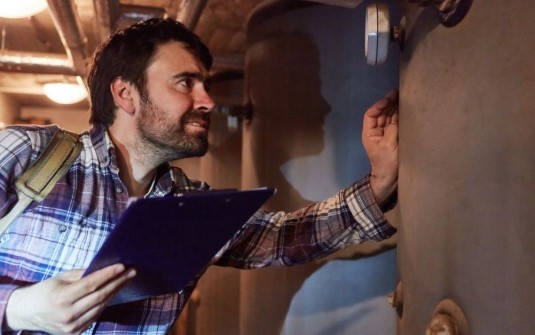
Why does your heater always fail when you need it most?
That’s the question, right?
Your home is freezing.
You’ve layered up like it’s Antarctica inside.
And you’re asking yourself, “Why now?”
Heating repair isn’t just about fixing a broken system.
It’s about restoring comfort when life throws you a curveball.
Let’s break it down.
What’s wrong, how to fix it, and why HVAC technicians are the unsung heroes of heating repair.
Why Heating Systems Fail
Here’s the hard truth: heating systems don’t last forever.
But they rarely just stop working out of nowhere.
1. Lack of Maintenance
Skipping yearly checkups?
It’s like ignoring your car’s oil change and expecting it to run perfectly.
Filters clog.
Parts wear out.
And small problems snowball into big ones.
2. Overuse
During winter, your heater works overtime.
It’s like running a marathon every day.
Eventually, something gives.
3. Age of the System
Most heaters have a lifespan of 10-15 years.
If yours is pushing 20, repairs will become more frequent—and expensive.
4. Thermostat Problems
Sometimes, it’s not the heater.
It’s the device controlling it.
Faulty thermostats can throw off the entire system.
The HVAC Technician’s Role in Heating Repair
Here’s the thing about HVAC technicians:
They’re like detectives.
When your heater acts up, they figure out the why.
1. They Diagnose Quickly
You’re guessing; they’re not.
HVAC technicians have the experience to spot issues immediately.
They know the difference between a clogged filter and a failing blower motor.
2. They Bring the Right Tools
No, a screwdriver and YouTube tutorial aren’t enough.
HVAC technicians use advanced diagnostic tools to pinpoint problems and fix them effectively.
3. They Save You Money
Sure, calling a technician costs money upfront.
But ignoring heating issues costs way more in the long run.
Small fixes prevent major breakdowns.
4. They Improve Efficiency
It’s not just about making your heater work.
It’s about making it work better.
A skilled HVAC technician optimizes your system, so it uses less energy to keep you warm.
Common Heating Repair Scenarios
Ever wonder what’s really going on when your heater fails?
Here are the top problems HVAC technicians solve:
1. No Heat
The big one.
If your system isn’t heating, it could be anything from a blown fuse to a broken heat exchanger.
2. Weak Airflow
If the air barely trickles out, your system might have a clogged filter or failing blower.
3. Short Cycling
Your heater turns on and off constantly.
This usually points to a thermostat issue or overheating.
- Unusual Noises
Banging, rattling, or squealing sounds aren’t normal.
They signal loose parts or mechanical failures.
5. High Energy Bills
If your bill spikes for no reason, your system is likely overworking due to an internal issue.
Heating Repair vs. Replacement
Let’s face it.
Sometimes, repairs aren’t enough.
So how do you know when it’s time to replace your heater?
When to Repair
- The system is under 10 years old.
- Repairs are relatively inexpensive.
- The issue is isolated, like a broken thermostat or dirty filter.
When to Replace
- Your system is over 15 years old.
- Repairs cost more than half the price of a new system.
- You’re dealing with frequent breakdowns.
DIY Heating Repair: What You Can and Can’t Do
I get it.
You want to save money by fixing the problem yourself.
Here’s what’s safe—and what’s not.
Safe DIY Tasks
- Change the Air Filter: Do this every 1-3 months.
- Clean Around the Unit: Remove dust and debris.
- Check Thermostat Settings: Ensure it’s on the correct mode and temperature.
When to Call a Pro
- No heat at all.
- Persistent weird noises.
- Electrical or gas-related issues.
- Any repair involving internal components.
Messing with your heating system can be dangerous.
Leave the big stuff to the HVAC technicians.
Why Regular Maintenance Is the Key
Most heating repair problems are preventable.
A little maintenance now saves you from expensive repairs later.
What Maintenance Includes
- Checking for leaks or damage
- Testing thermostat and system performance
- Cleaning or replacing filters
- Inspecting electrical and mechanical components
The Benefits
- Lower Bills: An efficient system uses less energy.
- Fewer Repairs: Catch issues before they spiral.
- Longer Lifespan: Maintenance extends the life of your heater.
FAQs About Heating Repair
Q: How often should I get my heater serviced?
A: At least once a year, ideally in the fall before heavy use.
Q: Can I fix my heater myself?
A: You can handle simple tasks like changing filters, but leave repairs to the pros.
Q: How long does heating repair take?
A: Most repairs are done within a few hours. Complex issues might take longer.
Q: How much does heating repair cost?
A: Costs range from $100 for minor fixes to over $1,000 for major repairs.
Q: What’s the average lifespan of a heating system?
A: Most systems last 10-15 years with proper maintenance.
Final Thoughts
Heating repair doesn’t have to be intimidating.
When your system fails, HVAC technicians are there to bring comfort back to your home.
They diagnose, repair, and optimize your system so you’re not just warm—you’re comfortable.
And if you take one thing from this, let it be this:
Regular maintenance isn’t optional.
It’s the difference between consistent comfort and a freezing home.
Don’t wait for a breakdown.
Take action now.